Boscia® Luminizing Black Charcoal Mask: Benefits and Side Effects
Are Activated Black Charcoal Masks an A-peel-ing Peel or a Money Steal?
Charcoal peel masks have been at the forefront of every beauty regime in the battle against blackheads and other skin impurities. You may have already stumbled upon these products as they have been a hot topic on social media. Blackheads are a form of acne, also known as open comedones. In fact, blackheads are not due to pores filled with dirt or pollutants, rather they arise due to sebum (an oil produced in our pores) being oxidized by the bacteria P. Acnes1. This oxidation causes the pores to appear black at the surface of the skin. Acne, including blackheads, is prevalent in approximately 80% of people aged 11-30 which has provided a huge market for acne products, resulting in an overwhelming array of options to choose from1.
Although there are tons of products on the market, we decided to explore one of the more popular options on the market, the Boscia Luminizing Black Mask. If you are wondering whether this product would actually help with your blackheads, read on – we broke down the information for you in the outline below:
- What Is a Charcoal Peel Mask?
- How Does an Activated Charcoal Mask Work?
- What Other Ingredients are in The Boscia Luminizing Charcoal Mask?
- Are There Possible Side Effects with Boscia Luminizing Charcoal Mask?
- Bottom Line
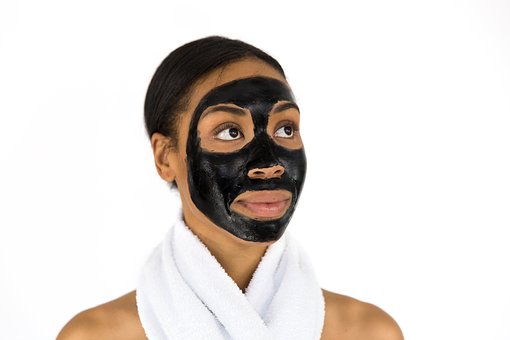
What is a Charcoal Peel Mask?
The charcoal mask is a glue-like agent that you apply to your face, let dry, and peel off, and is designed to stick to impurities and physically pull them out. The mask may seem like a medical marvel which “detoxifies, visibly improves the look of pores, absorbs excess oil, and gently exfoliates for an instantly fresh-faced look,” amongst a plethora of other “pore-purifying” benefits2.
How Does an Activated Charcoal Mask Work?
The mask’s claim to fame can be attributed to activated charcoal, but what is it that makes this wonder-ingredient so special? Activated charcoal (also known as activated carbon) is comprised from peat, coal, wood, coconut shell, or petroleum3. Activated charcoal is similar to charcoal, but differs in its manufacturing process in that it is treated in the presence of gas. The gas allows the charcoal to develop internal spaces which are responsible for “trapping” chemicals3. Activated charcoal has other applications for the body but when it comes to the skin, it is believed to adsorb toxins, dirt, and excess oils and remove them from their pores; however, we were unable to find published scientific evidence regarding activated charcoal and its dermatological effects, which leaves us questioning: is charcoal really a wonder ingredient or simply a marketing ploy?
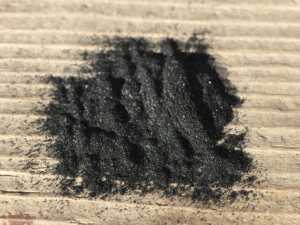
What Other Ingredients are in The Boscia Luminizing Charcoal Mask?
The Boscia website highlights active ingredients such as:
- Witch Hazel
- Calcium Montmorillonite (Clay)
- Vitamin C
- Maritime Pine Bark Extract
- Rosemary Leaf Extract
- Eucalyptus Extract
- Jojoba
- Willowherb
These ingredients claim to provide a wide array of benefits including absorbing excess oil, brightening skin tone, and providing both antibacterial and anti-inflammatory properties2.
Are There Possible Side Effects with Boscia Luminizing Charcoal Mask?
Activated Charcoal used on the skin has a low chance of causing allergic reactions and does not react with many other products3; however, if you have sensitive skin watch out for side effects especially from the additional ingredients.
- Witch Hazel Water: generally safe when used on the skin but can cause skin irritation, redness, burning5
- Vitamin C: tingling or irritation6
- Rosemary: can cause photosensitivity (an increased sensitivity to the sun)7
- Eucalyptus: skin inflammation, irritation, redness8
- Jojoba: skin inflammation9
We advise using a moisturizer and sunscreen after applying the mask to help prevent dry skin and protect the skin from UV rays.
We also recommend speaking to a health care professional if any irritations or photosensitivity occur, if you have any diagnosed skin conditions or are taking a medication that could increase skin sensitivity or skin integrity. For example, there is an increased risk of skin sensitivity and adverse reactions if you are on Accutane ® (Isotretinoin).
Bottom Line
Overall this product seems to be part of the fad of activated charcoal skincare regimens. This is not to say that the peel does not provide any benefit to the skin. Some of the active ingredients do have some evidence that may benefit the look of the skin, but due to the overall mechanism of the product, the main effects of smoother skin may be due to peeling off the most superficial layer of the skin which includes dead skin cells.
Authors:
Samreet Bhatti, Jessica Buhler, Emelie El-Hage, Jordan Kelly, John Markowsky, Aman Shah; BSc. Pharm Candidates
Faculty of Pharmacy and Pharmaceutical Sciences
University of Alberta
Edited and Reviewed by the Health Aisle Team
References:
1. Sibbald, D. (2014). Compendium of Therapeutics for Minor Ailments: Acne. Ottawa,Ontario: Canadian Pharmacists Association. 663-664, 646-669.
2. Boscia. (2017). Luminizing Black Mask. Retrieved from: https://www.boscia.com/shop/product_detail.php?products_id=116
3. Therapeutic Research Centre. (2012). Activated Charcoal. [Product Monograph], Natural Medicines Comprehensive Database.
4. Sephora. (2017). Boscia Luminizing Black Mask. Retrieved from: http://www.sephora.com/luminizing-black-mask-P266800?skuId=1269455&icid2=products%20grid:p266800
5. Therapeutic Research Centre. (2019). Witch Hazel. [Product Monograph], Natural Medicines Comprehensive Database.
6. Therapeutic Research Centre. (2019). Vitamin C. [Product Monograph], Natural Medicines Comprehensive Database.
7. Therapeutic Research Centre. (2019). Rosemary. [Product Monograph], Natural Medicines Comprehensive Database.
8. Therapeutic Research Centre. (2019). Eucalyptus. [Product Monograph], Natural Medicines Comprehensive Database.
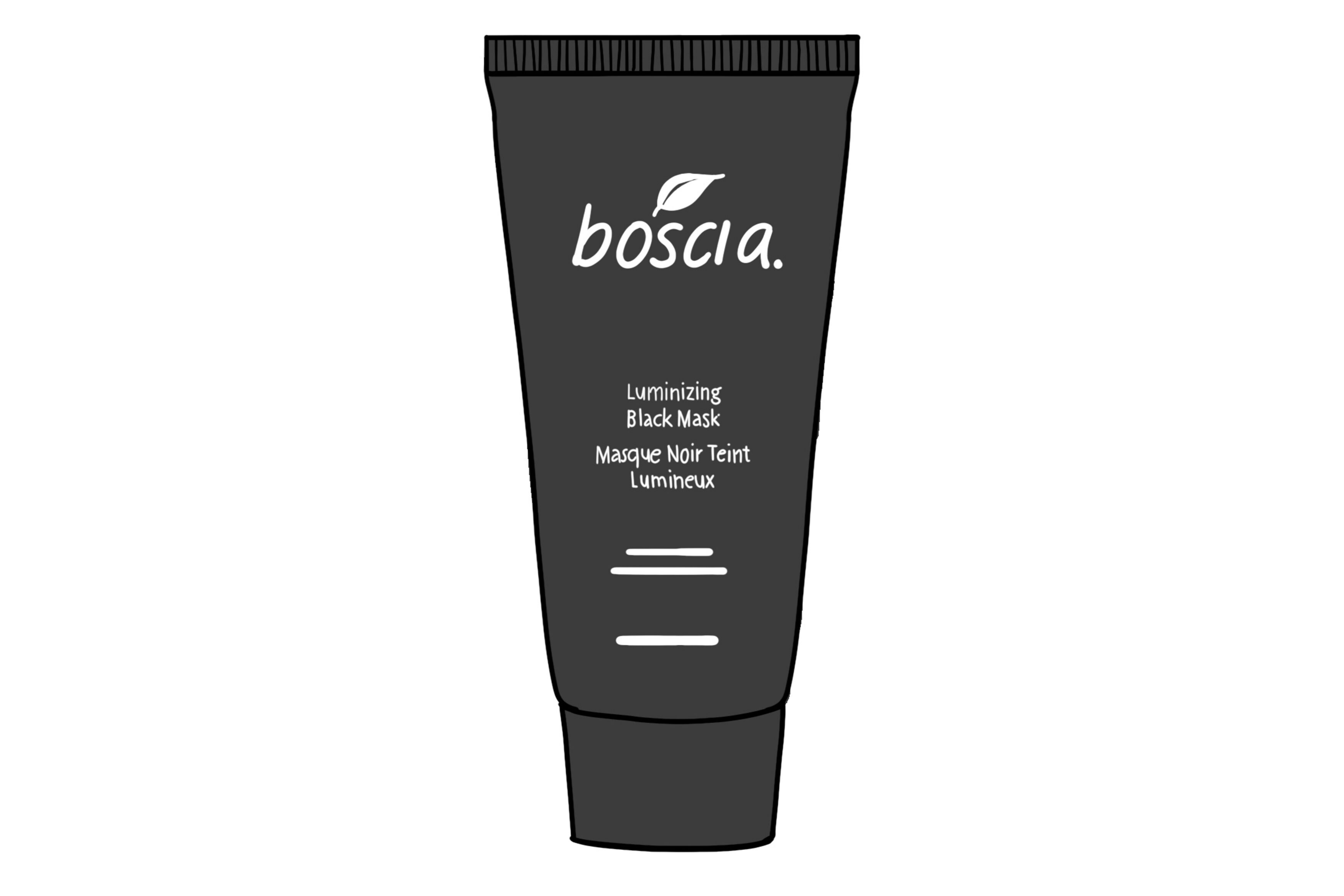
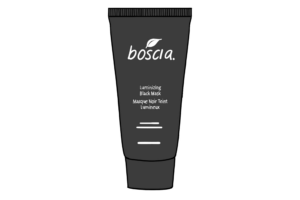
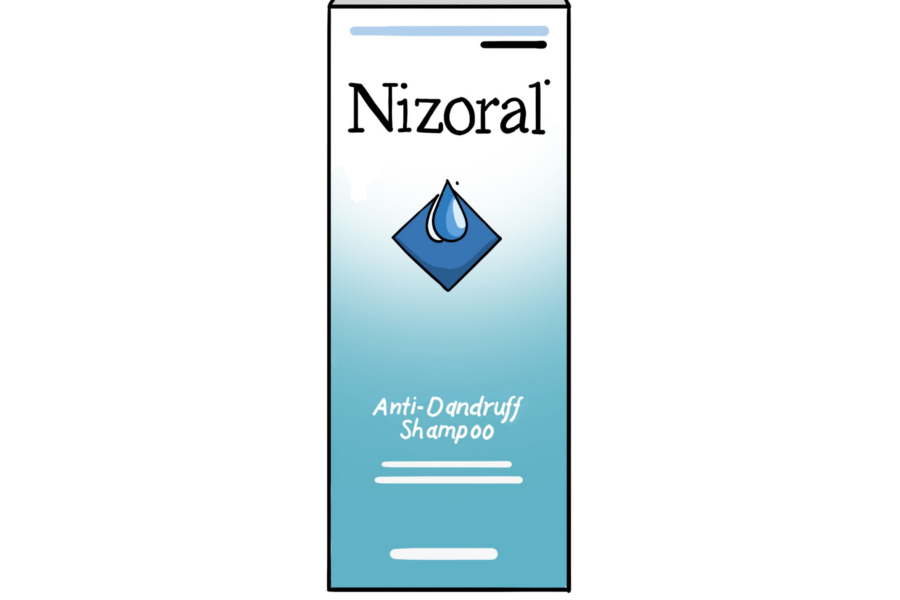


Leave a Comment